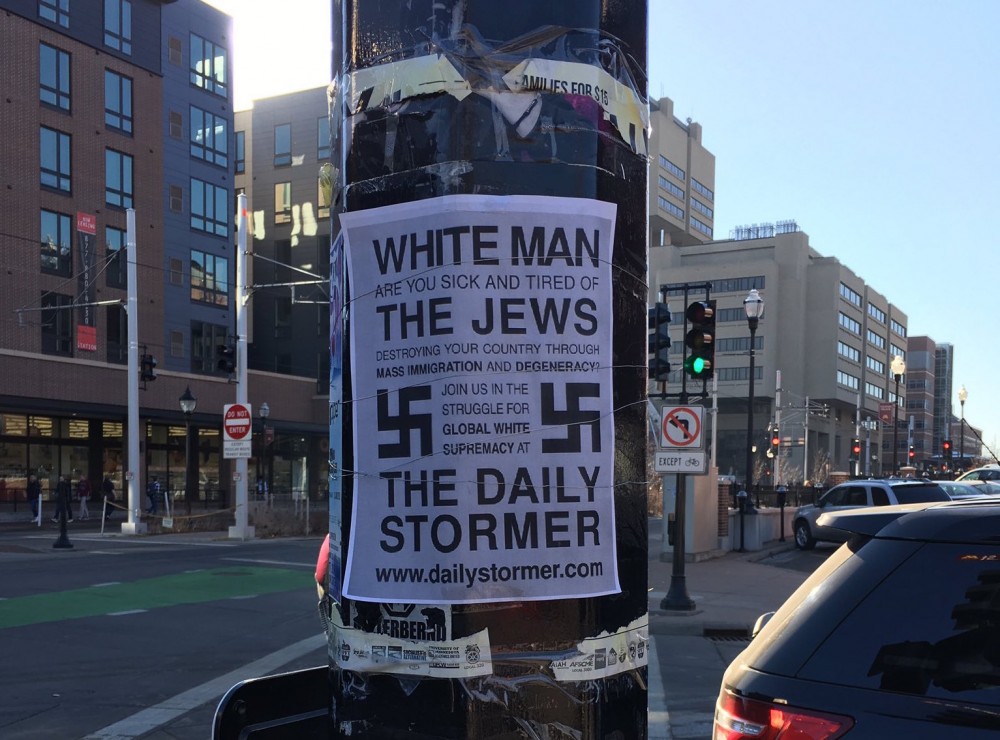The University of Minnesota campus was hit with a spate of anti-Semitic incidents last week, mirroring an unsettling national trend of increased hate speech directed at Jews.
Since December, the University’s Bias Response and Referral Network reported seven cases of swastikas, neo-Nazi propaganda and other anti-Semitic graffiti on campus.
The two latest incidents — an anti-Semitic poster found near the McNamara Academic Center on Friday, and the Thursday arrest of an 18-year-old University student over a swastika incident at 17th Avenue Residence Hall — come less than two weeks after a Jewish first-year found a drawing of a Nazi death camp emblazoned on a whiteboard in his dorm room.
President Eric Kaler, Provost Karen Hanson and Vice President of Equity and Diversity Katrice Albert responded to the anti-Semitic events in a letter Sunday, writing: “We are committed to working closely with all on campus, including the leadership of Minnesota Hillel and Chabad, to determine how best to address these anti-Semitic incidents and move forward, always together, as a unified University of Minnesota community standing against hate.” It’s reassuring to see our administration take appropriate action.
But this dour trend of anti-Semitic rhetoric — which has reached levels unseen since the 1930s, according to Anti-Defamation League chief, Jonathan Greenblatt — is only worsened by President Donald Trump’s vacuous and apathetic response to the issue.
In a press conference last week, a Jewish reporter asked about the rise in anti-Semitic acts in the U.S., and worries that Trump’s administration is stoking the flames of racist and xenophobic movements across the nation.
Like a robot programed without empathy, Trump dodged the question: “Well, I just want to say that we are, you know, very honored by the victory we had. Three hundred and six Electoral College votes. We were not supposed to crack 220. You know that, right?” and ended with “I think that you’re going to see a lot different United States of America over the next three, four or eight years. … You’re going to see a lot of love.”
On campus, we’re seeing a different America play out before our eyes, and it’s characterized by ill will and hate — not love.
The escalation of malicious, anti-Semitic acts at the University has been condemned by campus administrators, yes, but it seems that for the majority of campus, where there should be furor, outrage and distress signals, there’s the heavy weight of silence.
And let us not forget that many groups have been targeted by hate in public ways this school year, even in some cases by student organizations.
Silence is a violence of its own, and from it spawns ambivalence and normalization. And while our commander in chief continues to flounder when it comes to condemning acts of hate, we must remind our community that anti-Semitism and other forms of hate speech have never left our communities, but must not be allowed to flourish even with a bigot in the White House.








